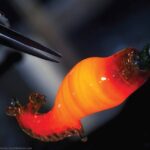ZURICH (Reuters)—The line dividing makers of brand-name drugs and copycat medicines is blurring as companies known for innovative treatments queue up to peddle copies of rivals’ complex biological medicines.
These drug makers are now increasingly straddling both sides of the courtroom, too, protecting their high-price products from biosimilars—biopharmaceutical drugs with the treatment properties of medicines they seek to mimic—while simultaneously challenging rivals’ patent claims.
Biologics, manufactured in living cells, then extracted and purified, are more complex than traditional medicines and cannot be copied with precision, and so their knock-off versions are called biosimilars instead of generics.
The allure of biosimilars is clear, with insurers and other payers counting on the steep discounts. U.S. pharmacy benefit managers are already trimming brand-name drugs from their rosters.
With Novartis Chief Executive Joe Jimenez predicting biosimilar discounts of up to 75%, in part based on developments in Europe, makers of innovative drugs are fighting tooth and nail to protect their higher-priced products for as long as possible.
For instance, AbbVie has sued in Delaware claiming patent protection for its arthritis drug, adalimumab (Humira), the world’s best-selling prescription medicine, until at least 2022 as it seeks to delay an Amgen replica that won U.S. approval last week.
Meanwhile, Amgen has gone to another U.S. federal court seeking to protect its own arthritis medicine, etanercept (Enbrel), from a Novartis biosimilar until 2029.
With lawsuits pitting Big Pharma against Big Pharma piling up, lawyers said the legal landscape has gotten a lot more complex.
“One of the biggest surprises has been the number of innovator biopharma companies, like Amgen, now developing biosimilars to compete with the products of other innovator companies,” says Don Ware, an expert on biosimilars at U.S. law firm Foley Hoag in Boston.
“This creates conflicts for law firms like ours, because suddenly the clients we advise are adverse to each other,” Ware said. “And it makes it hard for the companies to retain top outside counsel without having to give them conflict waivers.”
Sanofi, Merck, Eli Lilly, Pfizer, Johnson & Johnson and Biogen are also embroiled in lawsuits over biosimilars.
Not Bitter Enemies
Even so, some analysts say the lawsuits are business as usual and are unlikely to spill over into other areas, including research partnerships.
Novartis and Amgen may be at each other’s throats in court over the Swiss drug maker’s etanercept copy, but the two are still cooperating on a drug for migraines.



